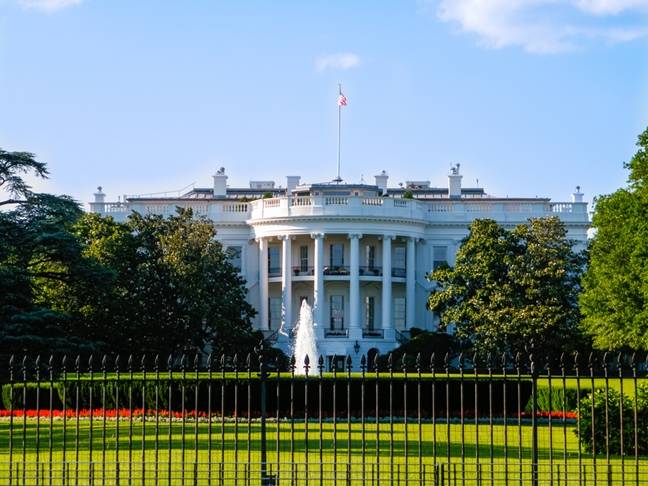Big Tech Trade Association Warns Uncle Sam Against Knee-jerk National Security Measures That Harm Industry

The Information Technology Industry Council (ITI) has delivered a light slapping to the US administration as it urged lawmakers to think a little harder about policies aimed at improving national security.
The trade group – comprising members such as Amazon, Apple, IBM, Microsoft and Oracle – published a blueprint aimed at guiding policy as US politicos continue to prod around the increasingly thorny issues of national security, technology and trade.
Sadly, the report was a little too long to fit into a tweet.
The five principles identified by ITI kicked off with a delicate suggestion that perhaps the US government might consider deploying national security tools in a way that supports, rather than impedes, US technological leadership. It also pointed out that that leadership was dependent on economic openness.
In a comment that runs the risk of enticing an unusually small, orange thumb to hit the tweet button, the ITI also suggested that measures should be "based on factual evidence of concrete risks" rather than the paranoid rantings of a social media echo chamber, for example, and "are narrowly tailored to the risks themselves, rather than applied to entire categories of technology or business activity."
In what is perhaps a nod to the interests of its members, looking nervously at some of the more extreme frothing being emitted in the name of national security, ITI also pleaded against the creation of more regulatory burdens in the guise of security and urged that any new measures be tailored to the risks themselves rather than daubed over an entire tech category.
It also suggested that measures implemented should not be used "to advance trade or other economic policy goals." Heaven forbid that the US rolls out something that purports to be in defence of national security, but actually has slightly more economic objectives.
Finally, cooperation with "like-minded economies" was recommended, with common approaches to technology-related national security risks (and includes the expediting of approval for technology exports). Continuous cooperation between government and industry was also urged.
Otherwise moves being made by politicos "could create unintended negative consequences for US competitiveness, technological leadership, and – ironically – national security." ®
Sponsored: Running Your Modern .NET Application on Kubernetes
From Chip War To Cloud War: The Next Frontier In Global Tech Competition
The global chip war, characterized by intense competition among nations and corporations for supremacy in semiconductor ... Read more
The High Stakes Of Tech Regulation: Security Risks And Market Dynamics
The influence of tech giants in the global economy continues to grow, raising crucial questions about how to balance sec... Read more
The Tyranny Of Instagram Interiors: Why It's Time To Break Free From Algorithm-Driven Aesthetics
Instagram has become a dominant force in shaping interior design trends, offering a seemingly endless stream of inspirat... Read more
The Data Crunch In AI: Strategies For Sustainability
Exploring solutions to the imminent exhaustion of internet data for AI training.As the artificial intelligence (AI) indu... Read more
Google Abandons Four-Year Effort To Remove Cookies From Chrome Browser
After four years of dedicated effort, Google has decided to abandon its plan to remove third-party cookies from its Chro... Read more
LinkedIn Embraces AI And Gamification To Drive User Engagement And Revenue
In an effort to tackle slowing revenue growth and enhance user engagement, LinkedIn is turning to artificial intelligenc... Read more

